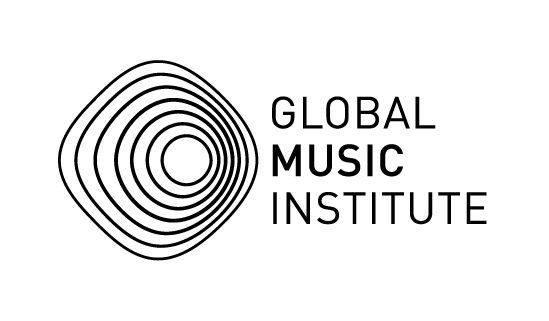
03 Sep In Conversation with: Amira Gill
The ‘In Conversation with’ series brings to you the stories of musicians and their musical journeys. The first feature presents the story of New Delhi-based artist and music therapist, Amira Gill.
Courageously authentic, fiercely determined, and ever so generous with her spirit, Amira Gill is a vocalist, and a music therapist. For Amira, music is the way; and that is how much of her musical journey has unfolded. Creating ripples at a young age with her powerful voice in the Delhi music scene, she ventured into music therapy seeking deeper fulfilment. Born in Delhi, Amira has been on a musical adventure that has taken her across three continents, and four countries – from India, to the US and then to Uganda and Kenya in East Africa. Through her journey, she has been shattering prescriptive boxes, and bravely laying the foundations in creation of a path uniquely her own.
Early years in music
Dabbling in various forms of art through kathak, guitar, piano, and art classes, Amira recalls herself as being a “jack of all trades, master of none.” What emerged from these various experiences was her love for dancing, rhythm, and melodies. Mesmerised by the voices of Beyoncé, Alicia Keys, and Leona Lewis, she listened and she sang. “Even though I was not formally taught to sing, whenever I sang I was paying a lot of attention to how they are delivering like that – whether it was dynamics or it was tone; and wondering why I am feeling the way I am feeling when listening to these singers. When I sing, I feel an honesty that I don’t feel in anything else. No one pressured me to sing this or that. I always sang what I wanted to and had no expectations from it because I wasn’t presenting to anyone and that was the key to developing a relationship with it.”
Venturing out from the four walls of her room, Amira found her way to Performance Collective, where she met the members of her first band ‘The Incredible Mindfunk’. Foraying into writing and performing original music for the first time, she performed across venues in Delhi-NCR with the band at the tender age of 15. Performing, writing and learning with Mindfunk proved to be a transformative period of her life. However, after a few years of performing for audiences at the same clubs, Amira wanted to expand her musical horizons by exploring it in a way that provided a deeper sense of fulfilment.
The search for the missing piece led her to the Berklee College of Music to study music therapy.
Delhi to Berklee
Navigating the unfamiliar socio-cultural space in Berklee away from home for the first time, whilst undertaking a demanding academic curriculum was no small feat. “I was taking it a day at a time, and it was a non-linear journey. I was growing in confidence in some areas, and losing confidence in other areas. I think when you are pushed into a situation where you have to do it, you just do it.”
Self-doubt and self-criticism most musicians grapple with regularly only intensified in a microcosm of musical excellence like Berklee. “I realised that you have to remind yourself of your strengths and patiently cultivate those. It was difficult to focus on what I can bring to the table when all I could see were my shortcomings. But when I started seeing myself as worthy and capable, my approach towards collaborations and seeking opportunities changed.  I learned the importance of positive self-talk, and realised that when you do have something to offer you have to first believe in it and hone into it, and then life starts to organically make space for newer opportunities and the right kind of people.”
I learned the importance of positive self-talk, and realised that when you do have something to offer you have to first believe in it and hone into it, and then life starts to organically make space for newer opportunities and the right kind of people.”
Finding community in the Berklee Indian Ensemble and the international student community at Berklee, Amira was drawn to the sounds from all corners of the world. Venturing into new styles with humility, seeking help when needed, she says, “musically I learnt that I don’t want to box myself at all. If that means having a brand that’s not very clear as of now, that’s fine.” Intent on exploring Soul to Punjabi folk to Umm Kulthum, the inflections, melody lines, and spirit of each style are infused in Amira’s rich and reverberant vocal style.
Exploring music therapy
Driven by her love for music, she recalls, “I wanted to be a great musician whose musical abilities are the reason her music therapy abilities are also great.” Inspired by the innovative approaches of her supervisor, Jenna Bollard, her 6-month internship at the UCLA Mattel Children’s Hospital shattered myths about the prescribed processes of a music therapy practice. “I wanted to do music therapy where the act and involvement of creating a song and singing is therapy in itself. Whenever I do music therapy it has to be exciting and fulfilling for me too, because only if it is exciting to me will I be able to help and authentically serve the people I am working with. I want to work with people I relate to and causes I feel for.”
Reflecting on the internship, she says, “the exposure gained at the internship could not have come through anything other than the practical, immersive experience of practicing music therapy every day with people in need of the service.” Understanding the structural constraints of the academic program, she adds, “just because a curriculum has its limits, doesn’t mean you have to limit yourself. In music therapy, as long as the process leads you to your goals, it is yours to create.”
Real world and real people
Amira’s role as a music therapist at the hospital was to achieve the goals, tailored to the needs of each client. Addressing the needs of young clients, in her role as a music therapist she used the tools of music therapy to empower and liberate young children in trying situations that can leave anyone feeling powerless.
Practicing music therapy in the real world brought her face to face with critically ill clients in adverse situations. Rising to these demands, she says, “it is really important to figure out what makes you feel at peace. I just wanted to ensure that whatever amount of time the person had, they were cared for to the best of my abilities and to do the best that I can in the moments I had there.”
At UCLA, Amira tended to young children at the hospital who, apart from their medical challenges, were missing out on the simple joys of childhood such as befriending their peers, and learning in a classroom setting. “Working in a hospital setting is really gratifying. To be able to be there with them, and for them, by finding ways to bring them up to feel beautiful in and about who they are… if you can inject the slightest bit of normalcy and care, there is something very wholesome in that experience. It’s such an honour to be able to share that space with that kid”
LA to East Africa
After graduating from Berklee, in 2019, Amira got the opportunity to travel to Kenya and Uganda with the organisation ‘Umoja Global Community Music Therapy’. Founded by Cara Smith, the Umoja Global team focussed their efforts on community building, and empowering women and children to overcome adverse life experiences, through music therapy practices such as goal-based song-writing, lyric substitution, community singing, movement, and drumming. “The focus of the music therapy work was on providing resources and doing advocacy work. In rich, ancient cultures music has always been used intuitively as a tool to build community and heal. It is not a new concept to anyone. These practices already exist, albeit in a less official manner.”
Recalling the fulfilling and eye-opening experience, she says, “we had a lot to learn from the women and children we were working with – about music, engagement, and strength. They had gone through and overcome (or were in the process of overcoming) a lot more than any of us from the Umoja Global team could even imagine. We were learning from them equally, if not more, than what they learned from us. Music ran in their veins and it was truly a cultural exchange more than a one-sided ‘teacher-student’ relationship.”
The redemptive powers of community and human connection emerged as one of the key lessons. “The one take-away for me was the power of community. It is so important for human beings to have a support system, to have a foundation based on trust. That trust and empowerment comes from the community you are in. When one thinks of a country in the African continent, one immediately assumes the lack that needs to be filled – food, clothing, education gaps, other resources etc.”
“Although there was so much poverty, lack of resources, and possibly so many other issues that you don’t know until you are living the life of the person you are engaging with, there was also so much wholesome progress of another kind. A progress that western, ‘first-world countries’ lack majorly, such as a community-mindedness, and a pace of life focussed on growth of a family and community, rather than a sole focus on the individual.”
The path forward
Responding to the potential professional pathways music therapy students can undertake, Amira responds, “you can go as far as your imagination can take you – this is what I have learned. The first step is to understand what you can contribute to, what you deeply care about. So that when you’re working in that environment or with those people you’ve chosen to work with – you don’t feel drained and burnt out after every day of work. It’s important to undergo music therapy training through an extensive degree program but you don’t have to stick to only what you learn. You can get additional qualifications that are more specific, for example, Neurologic Music Therapy Certification (used for neuro-rehabilitation with patients who have undergone traumatic brain injury or have neurodegenerative diseases).”
Practicing music therapy in India remains a challenge where unlike the U.S., there is no national accreditation system and it is not recognised as a profession. Speaking to the many challenges of the growing practice, she says, “advocacy is most important as people don’t know what music therapy is. Most people feel it is an obscure thing that only hippies indulge in. Patiently educating is a challenge. Approaching clients, schools, corporations and being taken seriously can be challenging. Finding the population that you can work with is a challenge sometimes.”
However, with increasing access to the internet, and the compounding effects of globalisation, awareness about the beneficial effects of music therapy and people’s receptiveness to the practice is growing. “The way music therapy is explained and introduced will be a determinant of how it is received. In medical settings videos, testimonials, and most importantly research papers are what sell music therapy to a clinical staff. For other populations it will also be a combination of research papers, and music therapy demos that make or break the deal. Through social media and ongoing efforts in outreach – there are sure to be waves. Word of mouth is also an effective way of reaching more people.”
As one of the earliest music therapists in the emerging market in India, Amira is a true pioneer of the field; and her story is a true inspiration to those wanting to follow their hearts.
If you’d like to continue the conversation with Amira you can find her on Instagram and her music on Spotify as well as Youtube. Her podcast Music Therapy approaches by Amira explores the space of music therapy through conversations with respected music therapists.
Until the next conversation, stay safe, stay tuned!
Senjuti Maitra







No Comments